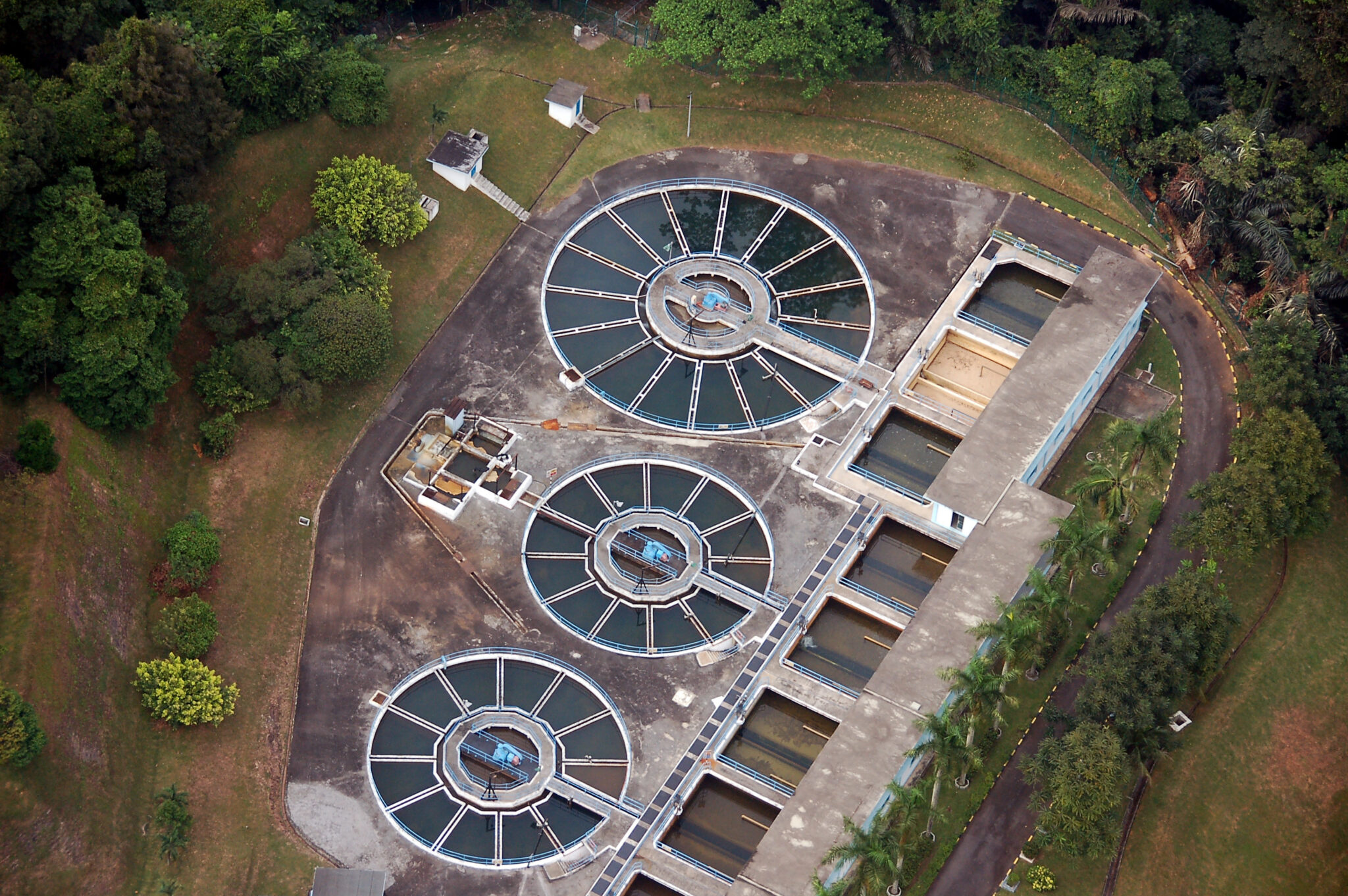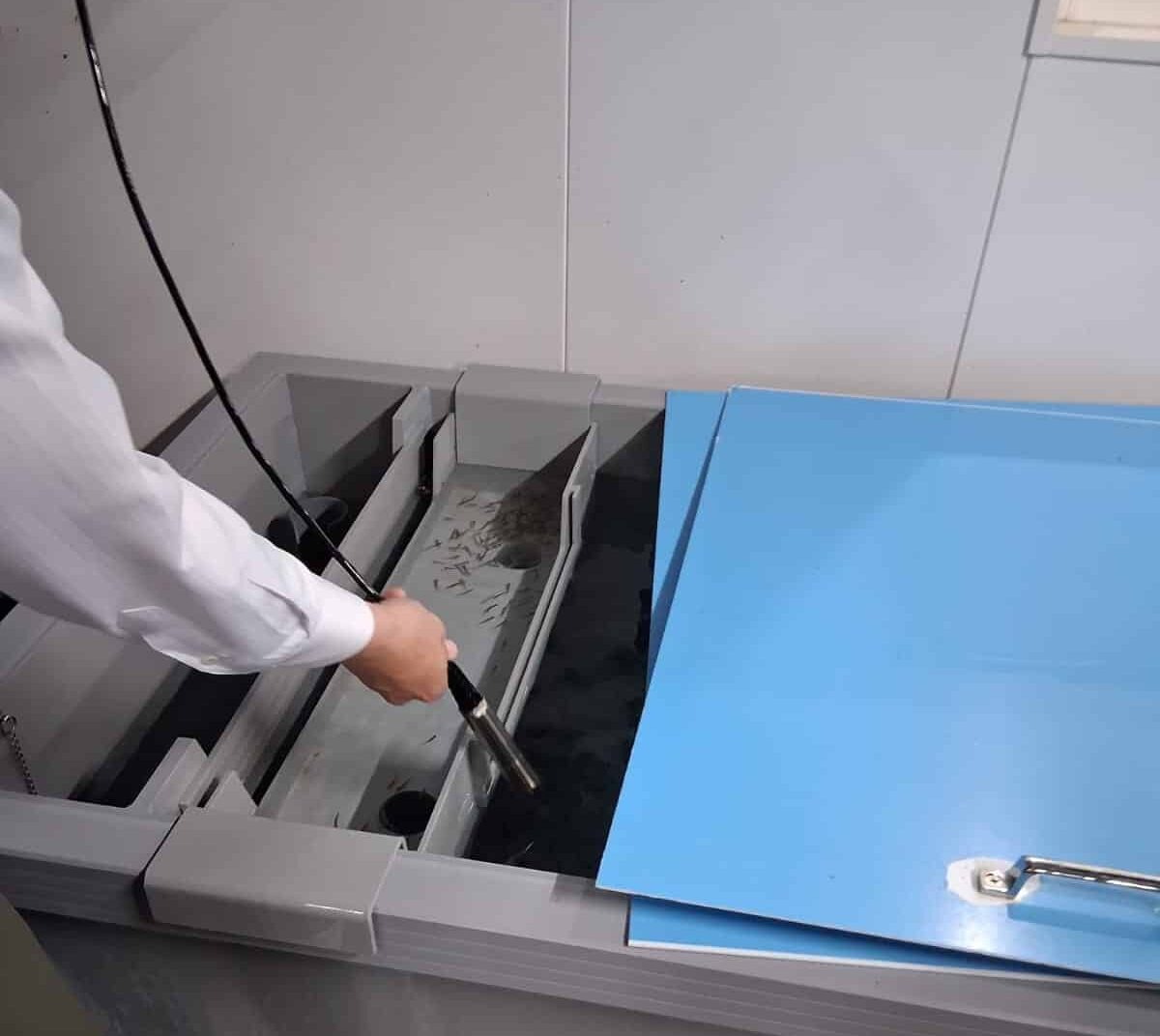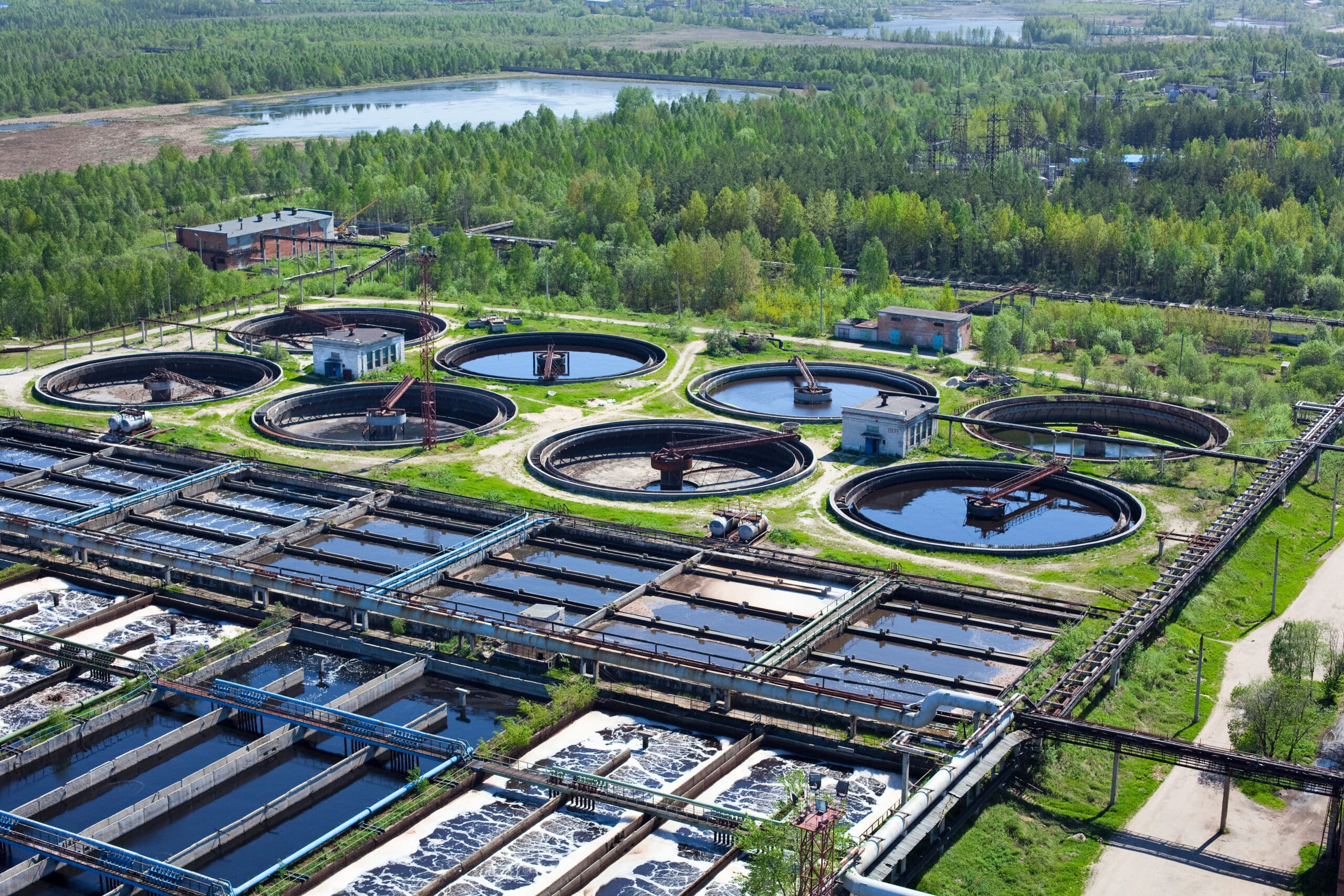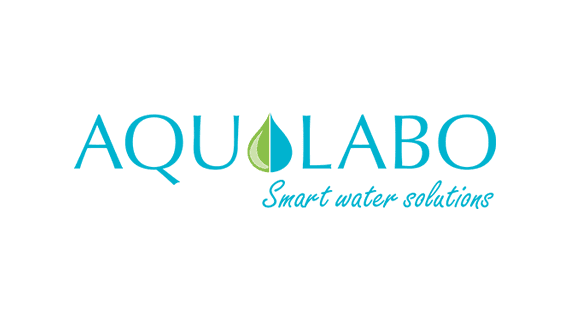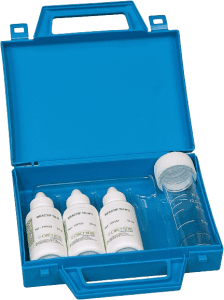
How and why measure water hardness?
Water hardness: what is it?
The water we use every day may contain different minerals, which affects its hardness. Water hardness mainly refers to the concentration of limestone, i.e. the level of calcium and magnesium present in the water.
Water that is too hard can have a negative impact on household appliances and plumbing, while water that is too soft can be corrosive. In this article, we’ll explore different methods of measuring water hardness, including the drop and burette test kits offered by Aqualabo, which provide accurate, simple and quick solutions for assessing water hardness.
What is TH measurement?
Measuring TH, or Titre Hydrotimétrique, is a method used to assess the hardness of water, i.e. the concentration of calcium and magnesium ions dissolved in it. Expressed in French degrees (°f), where 1°f corresponds to 10 mg of calcium carbonate (CaCO₃) per litre of water, this measurement is used to determine whether a water is soft, moderately hard, or hard. Water hardness can have significant effects on domestic and industrial installations, influencing in particular the build-up of limescale in pipes and appliances.
Knowing the TH of water is essential for making decisions about its treatment, such as installing water softeners or adjusting industrial processes to prevent limescale deposits and optimise energy efficiency.
TH can be measured using test strips, titration kits or electronic devices, with each method offering levels of accuracy tailored to the specific needs of users. Aqualabo’s drop or burette titration test kits are specially designed for high-precision TH measurement. Easy to use, these kits provide a reliable assessment of water hardness, whether for domestic or industrial use.
Why measure water hardness?
Before diving into the testing methods, it’s essential to understand why it’s important to know your water hardness. Hard water can lead to the build-up of limescale deposits in pipes and appliances such as water heaters, dishwashers and washing machines. These deposits can not only reduce the efficiency of these appliances but also increase your energy consumption.
Water that is too hard can also make it difficult to wash clothes and cause skin irritation. Measuring water hardness will help you take the necessary steps to treat your water and prevent these problems. Many homeowners use a water softener to lower the concentration of limescale, thus protecting their homes from the harmful effects of hard water.
Accurate interpretation of the results is essential for making informed decisions and taking appropriate action, thereby preserving the quality of the water and your installations. Water hardness levels are classified as very soft (0 to 8°f), soft (8 to 15°f), medium hard (15 to 25°f), hard (25 to 35°f), and very hard (> 35°f).
How and why is it important to know the hardness of your local water?
Knowing the hardness of your local water is essential for a number of reasons, both for households and for public infrastructure. Water hardness, determined by the concentration of minerals such as calcium and magnesium, has a direct influence on the quality of the water you use every day.
Hard water can lead to limescale deposits in your household appliances, reducing their efficiency and lifespan, while increasing energy costs. To get a quick result on water hardness, many local authorities use simple dropper test kits, which make it easy to measure mineral concentration. For local authorities, this information is crucial to ensuring that water is properly treated before it is distributed, thereby protecting plumbing systems and ensuring that residents are happy with their water.
Using these test kits also enables informed decisions to be made about the installation of water softeners or other treatment devices, improving residents’ quality of life. In addition, it helps prevent skin and hair problems linked to the use of water that is too hard or too soft. In short, measuring and understanding the hardness of your local water, by obtaining accurate results using test kits, is an important step towards optimising water management and preserving domestic and municipal equipment.
Solutions for treating water hardness
Water softeners
If your tests reveal that your water is hard or very hard, installing a water softener can be an excellent solution. These systems generally use ion exchange resins to replace calcium and magnesium ions with sodium ions, thereby reducing the concentration of limescale.
Make sure you choose a model suited to your daily water consumption and carry out regular maintenance to extend the appliance’s lifespan. Water softeners represent a long-term economic investment by preventing scale build-up and improving the energy efficiency of household appliances.
Specific filtration
In addition to softeners, certain filtration technologies can also be used to treat water hardness. For example, Reverse Membrane (RO) filters are effective at removing a wide range of contaminants, including the minerals responsible for hardness.
However, these systems often require regular maintenance and can be quite expensive initially. Nevertheless, they remain a viable option for those looking to significantly improve the quality of their drinking water.
Measuring and testing water hardness in industrial environments
More than just protecting household appliances. Water hardness, which corresponds to the concentration of calcium and magnesium ions (limescale), can have a significant impact on the quality of water used in municipal systems and local industries. Hard water can lead to the build-up of limescale deposits in pipes, reducing the efficiency of water distribution networks and increasing maintenance costs. For local authorities, it is essential to measure water hardness in order to prevent these problems and to guarantee the supply of quality water to the entire population.
Test kits, such as those offered by Aqualabo, make it possible to measure water hardness quickly and accurately, whether for domestic or industrial use. These tests are particularly important for industrial installations, where water of a specific quality is needed to avoid problems such as scaling of equipment or boiler corrosion. The results obtained with these kits help network and industrial managers to make informed decisions about water treatment, optimising system performance and extending equipment life.
What’s more, for local authorities, this knowledge also makes it possible to inform residents about the potential need to install water softeners or other treatment devices, thereby helping to improve the comfort and health of residents. In short, regular measurement of water hardness using test kits is a key element in maintaining the integrity of public infrastructures and guaranteeing high-quality water for all uses.
Aqualabo products for water hardness testing: Accurate, Simple and Reliable
Aqualabo offers several products for measuring water hardness, such as drip titration test kits and burette titration methods, offering accurate and fast measurement. The kits include options for various hardness ranges and are designed for ease of use and reliability. These solutions are ideal for frequent and rigorous water hardness testing in domestic and industrial environments.
1. Drop Titration Test Kits :
These kits are ideal for quick and accurate water hardness analysis. Designed to be simple to use, they include specific reagents to measure different hardness ranges. Drip titration gives reliable results in minutes, making this kit perfect for frequent home or laboratory testing.
2. Burette methods :
Aqualabo’s burette methods are designed for detailed and professional analysis. The burette, with its extended titrant storage capacity, allows a greater number of tests to be carried out quickly. This increases the speed of analysis and the number of tests that can be performed. By offering increased precision and easy control of reagent volume, this device is particularly well suited to industrial environments or laboratories requiring frequent and efficient analysis.
Advantages of Aqualabo Solutions :
- High accuracy: The products are designed to provide accurate measurements of water hardness, guaranteeing reliable results.
- Ease of use: The kits are intuitive and simple to use, even without specialist training, allowing you to carry out tests independently and efficiently.
- Quality French manufacturing: With over 70 years of expertise, Aqualabo offers products manufactured in France, guaranteeing exceptional quality and durability.
- Solutions for All Needs: Aqualabo products cover a wide range of hardnesses, meeting a variety of needs for both domestic and industrial use.
- OEM and Custom Labels: Aqualabo offers OEM solutions with customised labels, allowing easy integration into existing systems and offering customisation tailored to the specific needs of professionals.
- Flexible Transport Options: Kits and equipment are available in a range of carrying case sizes, offering optimum flexibility for storage and transport to suit your needs.

